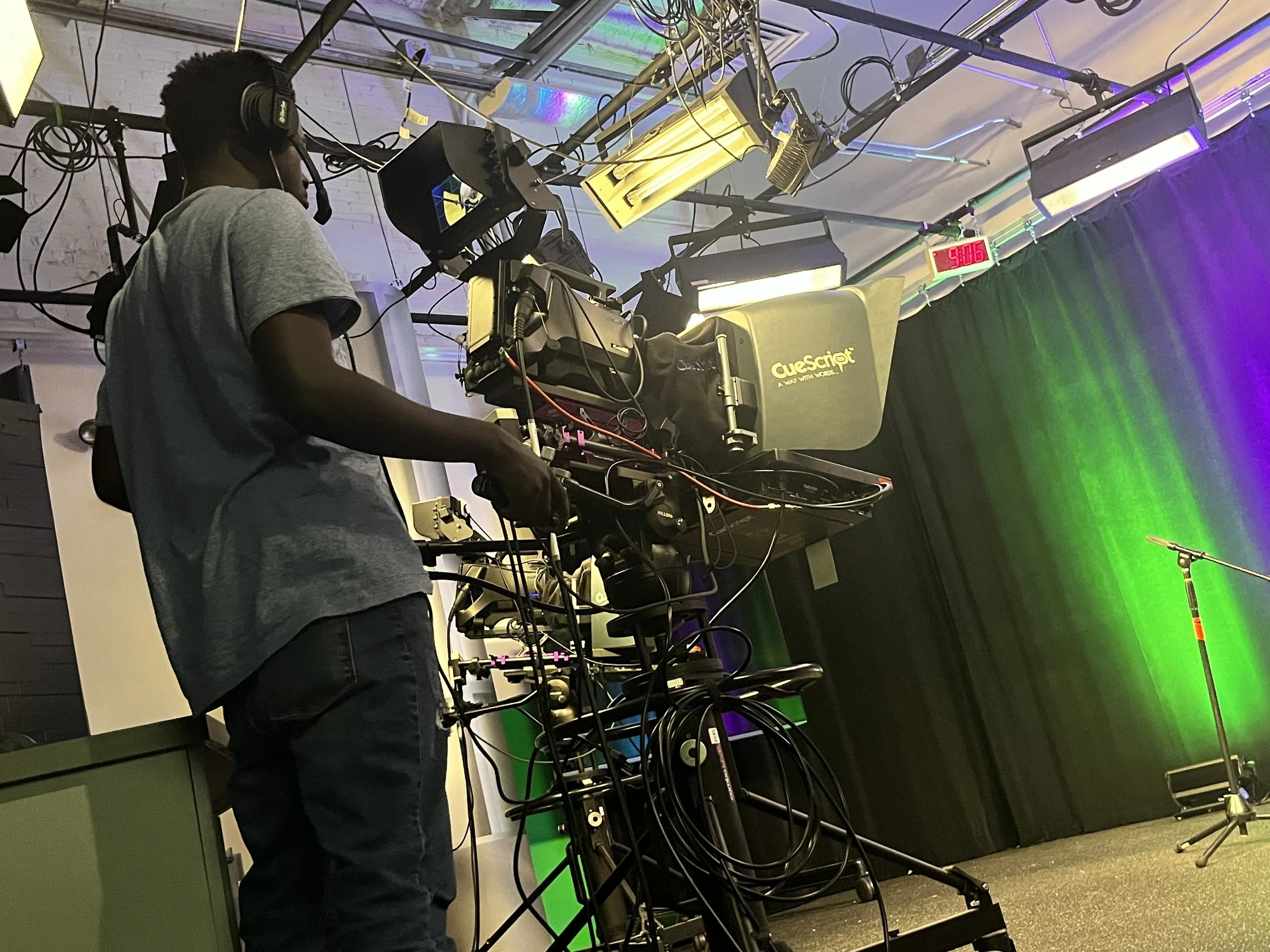Election coverage is civic information
There’s been considerable discussion in communities around the country about the news crisis, and in our community, we’ve been focused on the concept of civic information–not just news, but accurate, fact-based information that people need to be informed and engage with their communities.
Image credit: Public Media Network
One important facet of civic information is objective, non-partisan voter information that clearly spells out how and where to vote, and presents information about local candidates and issues. For decades, community media centers (CMCs) operating Public, Education and Government channels, among other services, have filled that need in communities around the country.
In a recent nationwide survey of CMCs, 71 percent reported doing some type of local election programming, ranging from producing candidate statements and forums, to hosting live, election-night coverage.
In Kalamazoo, MI, Public Media Network provides opportunities for candidates running for local office to provide unfiltered statements to inform people in the community about why they are running for office. Each candidate is recorded addressing the public directly and have up to three minutes to make their case for election.
PMN also partners with other local organizations to televise candidate forums to reach people who may not have been able to attend the forum due to scheduling conflicts or limited transportation. Based on resources available, they have also invited candidates to participate in interviews with questions and topics determined by members of the community, with these interviews conducted by high school students.
Executive Director Matt Schuster said they have provided election programming in one form or another for more than 40 years. "It is critically important for all candidates, and not just ones from major parties, to have access to media platforms to share their viewpoints and candidacies with the public without an intermediary,” he said. “The public needs opportunities to hear directly from candidates without the lens of who is winning the 'horse race' that is generally applied by mainstream media to election coverage."
Image Credit: Access Framingham
In Framingham, MA, Access Framingham produces election-related coverage from a dedicated newsroom within the organization. This summer, “The Frame: Framingham News in Focus” hosted candidates for the District 2 seat on the Massachusetts Governor's Council. The team provided in-depth interviews and context on the significance of this contested race. Executive Director Jason Daniels notes it was an obscure race that no one else was covering, yet it had generated the public’s interest.
At Davis Media Access (DMA) in Davis, CA, we’re in our 36th year of offering voter education programming. As I write, we’re in production for “Meet the Candidates,” a service we offer to all candidates in contested races for local city council, school board, and countywide offices, as well as state Senate and Congress. As in Kalamazoo, DMA provides the only opportunity for candidates to address the voters directly, without a host or gatekeeper.
Additionally, DMA has a long history of partnering with other community organizations on election forums. We frequently co-sponsor forums presented by the League of Women Voters, which means we’ll record and sometimes stream the presentation to expand its reach. In some election seasons, there are a myriad of single-interest forums produced by neighborhoods, parent organizations, the Chamber of Commerce, and so on. Resources allowing, we will cover, broadcast and archive any that adhere to a fair and neutral process for all candidates.
It’s important to note that DMA staff directly involved in elections maintain strict neutrality. We do not endorse candidates, post lawn signs, or attend campaign events. We provide a level playing field for all candidates: same set of recording conditions, same information supplied, same five-minute time limit.
“It is critically important for all candidates, and not just ones from major parties, to have access to media platforms to share their viewpoints and candidacies with the public without an intermediary. The public needs opportunities to hear directly from candidates without the lens of who is winning the ‘horse race’ that is generally applied by mainstream media to election coverage.”
In some cycles, depending on the number of local races, we’ll also host a live election-night show in our studio. All content airs on Comcast Channel 15 in Davis and is available by subscribing to Davis Media Access on YouTube. We frequently simulcast election programming on our Low-power community radio station as well.
As the discussion around the need for objective civic information continues to grow, it’s important to acknowledge the very real impact CMCs’ local election coverage already makes in this regard. In addition to providing a significant public service, it’s a robust form of community engagement helping us to build impactful relationships with candidates, community members, and elected officials alike.



